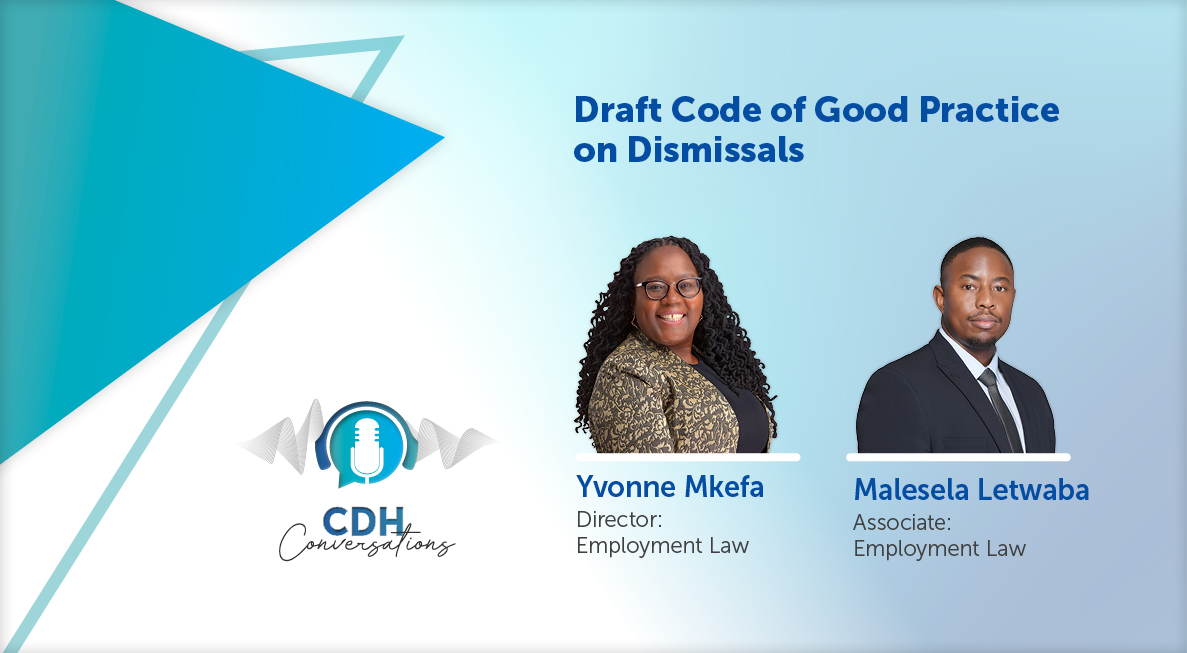Part 1 | The Property Practitioners Act unpacked: Mandatory disclosure forms
At a glance
- The Property Practitioners Act 22 of 2019 has replaced the Estate Agency Affairs Act 112 of 1976.
- Property practitioners are required to obtain a fully completed and signed mandatory disclosure form from sellers or lessors and provide it to prospective purchasers or lessees before making an offer.
- If no disclosure form is attached to a sale or lease agreement, the agreement is interpreted as if no defects or deficiencies of the property were disclosed. Accepting a mandate without a completed disclosure form may expose the property practitioner to liability for undisclosed defects.
Section 67 of the Act obliges property practitioners to obtain a “disclosure form” from a seller or lessor before concluding a mandate, and to provide it to a purchaser or lessee before making an offer.
Section 67 states as follows:
“(1) A property practitioner must:
(a) not accept a mandate unless the seller or lessor of the property has provided him or her with a fully completed and signed mandatory disclosure in the prescribed form; and
(b) provide a copy of the completed mandatory disclosure form to a prospective purchaser or lessee who intends to make an offer for the purchase or lease of a property.
(2) The completed mandatory disclosure form signed by all relevant parties must be attached to any agreement for the sale or lease of a property, and forms an integral part of that agreement, but if such a disclosure form was not completed, signed or attached, the agreement must be interpreted as if no defects or deficiencies of the property were disclosed to the purchaser.
(3) A property practitioner who fails to comply with subsection (1) may be held liable by an affected consumer.
(4) Nothing in this section prevents the Authority from taking action against a property practitioner or imposing an appropriate sanction.
(5) Nothing in this section prevents a consumer, for his or her own account, from undertaking a property inspection to confirm the state of the property before finalising the transaction.”
The disclosure form is a standard template document prescribed by the Act.
The disclosure form must be signed by all parties and attached to the sale or lease agreement.
A property practitioner must retain all mandatory disclosure forms relating to financing, sale, purchase or lease of property for a period of five years.
Can an authorised person complete the form on behalf of the seller or landlord?
Subparagraph 6 of the template mandatory disclosure form (“Owner’s certification”) states as follows:
“The owner hereby certifies that the information provided in this report is, to the best of the owner’s knowledge and belief, true and correct as at the date when the owner signs this report.”
Subparagraph 7 (“Certification by person supplying information”) further states that:
“If a person other than the owner of the property provides the required information that person must certify that he / she is duly authorised by the owner to supply the information and that he/she has supplied the correct information on which the owner relied for the purposes of this report and, in addition, that the information contained herein is, to the best of that person’s knowledge and belief, true and correct as at the date on which that person signs this report.”
In terms of subparagraph 7, if a person other than the owner of the property provides the required information that person must certify that they are duly authorised by the owner to supply the information and that they have supplied the correct information on which the owner relied for the purposes of the report.
What if no disclosure form is attached to a sale or lease agreement?
Section 67(2) is clear in respect of the effect on a property agreement (sale, lease agreement, etc.) where there is no disclosure form. If no disclosure form is signed and attached, the Act provides that the agreement must be interpreted as if no defects or deficiencies of the property were disclosed.
What if no disclosure form is attached to a mandate?
What are the implications of section 67(1), which provides that a property practitioner may not accept a mandate where there is no fully completed and signed disclosure form? Circumstances may arise where a seller or landlord lives abroad and may, on this basis, refuse to complete such a form, as the condition of the property is simply not within their knowledge.
The language of section 67(1)(a) is clear. It says that the property practitioner must not accept a mandate unless they have received the duly completed and signed disclosure form. What then are the associated risks in accepting a mandate without a fully completed and signed mandatory disclosure form, notwithstanding the prohibition in section 67(1)(a)? Regulation 38 states that a breach of section 67(1) constitutes a minor contravention which carries a penalty of R15,000. The bigger issue, however, is the potential personal risk for the property practitioner in terms of liability for defects in the property.
The most significant risk posed is in respect of property sales. If no disclosure document is attached to the mandate and the property practitioner nevertheless accepts the mandate and thereafter brokers a sale, the sale agreement is read as if no defects or deficiencies in the property were disclosed. The risk is that if there are such defects or deficiencies which were known to the seller but not included in the sale agreement, the property practitioner could potentially be held liable by the purchaser.
The information and material published on this website is provided for general purposes only and does not constitute legal advice. We make every effort to ensure that the content is updated regularly and to offer the most current and accurate information. Please consult one of our lawyers on any specific legal problem or matter. We accept no responsibility for any loss or damage, whether direct or consequential, which may arise from reliance on the information contained in these pages. Please refer to our full terms and conditions. Copyright © 2025 Cliffe Dekker Hofmeyr. All rights reserved. For permission to reproduce an article or publication, please contact us cliffedekkerhofmeyr@cdhlegal.com.
Subscribe
We support our clients’ strategic and operational needs by offering innovative, integrated and high quality thought leadership. To stay up to date on the latest legal developments that may potentially impact your business, subscribe to our alerts, seminar and webinar invitations.
Subscribe



